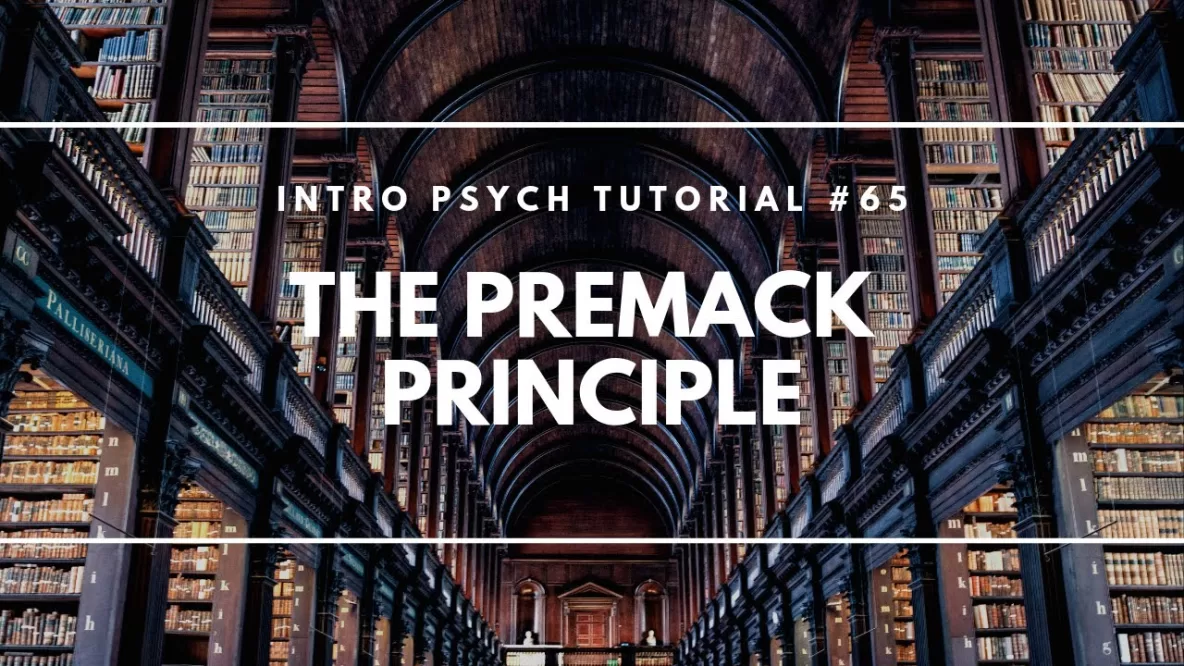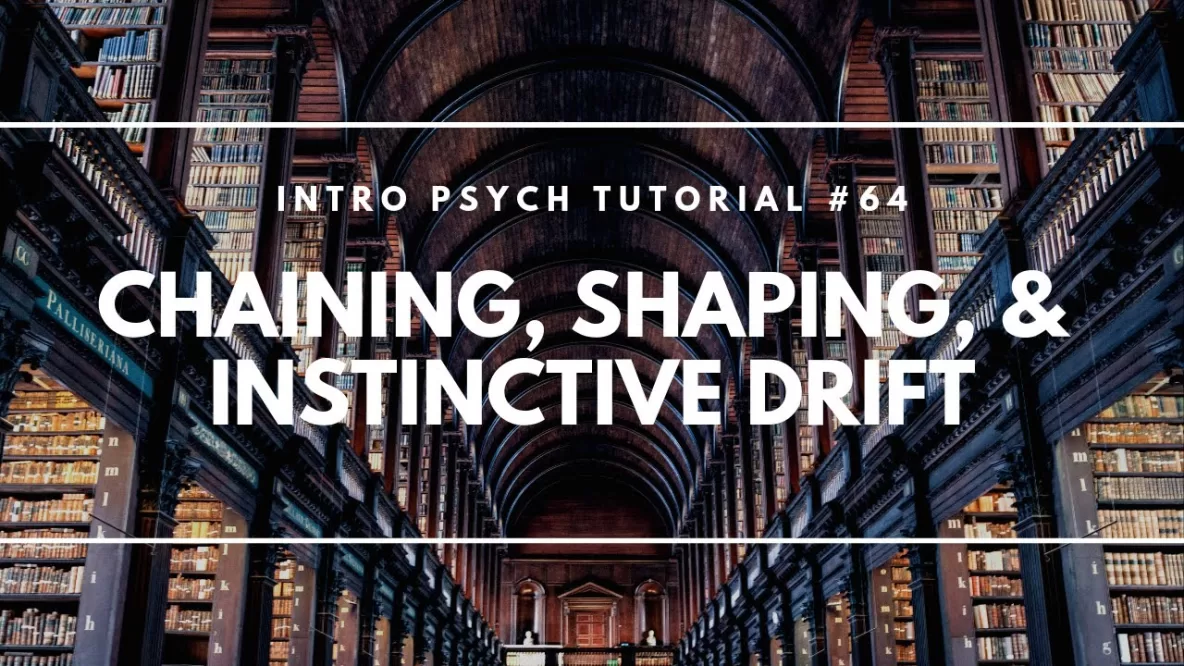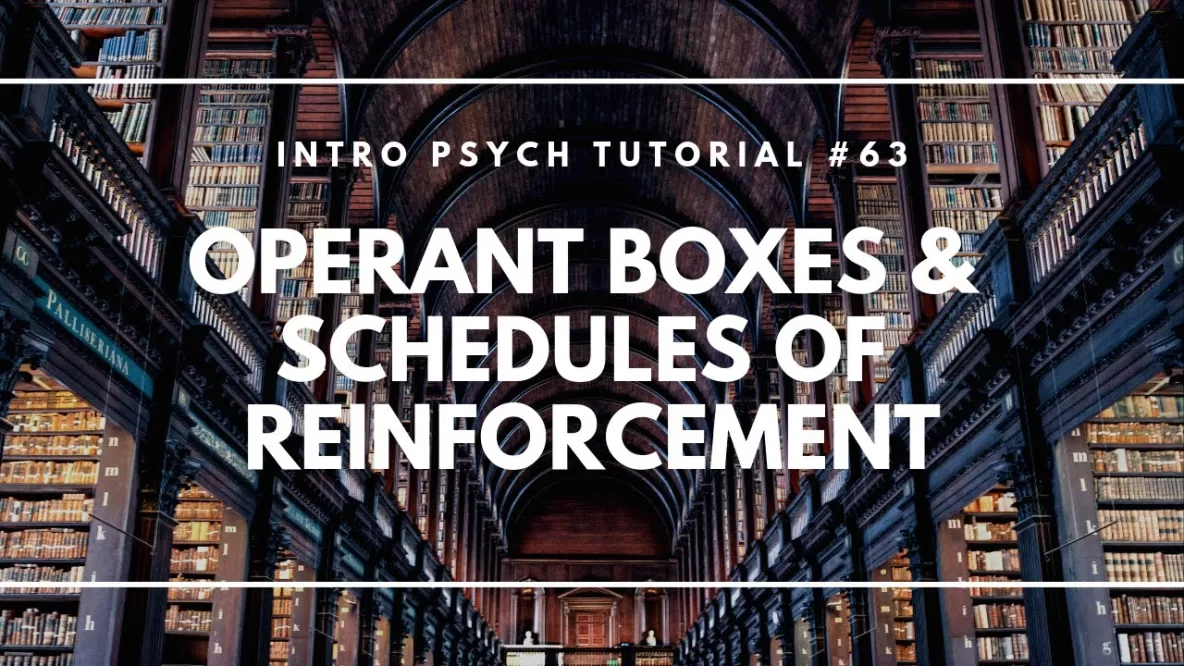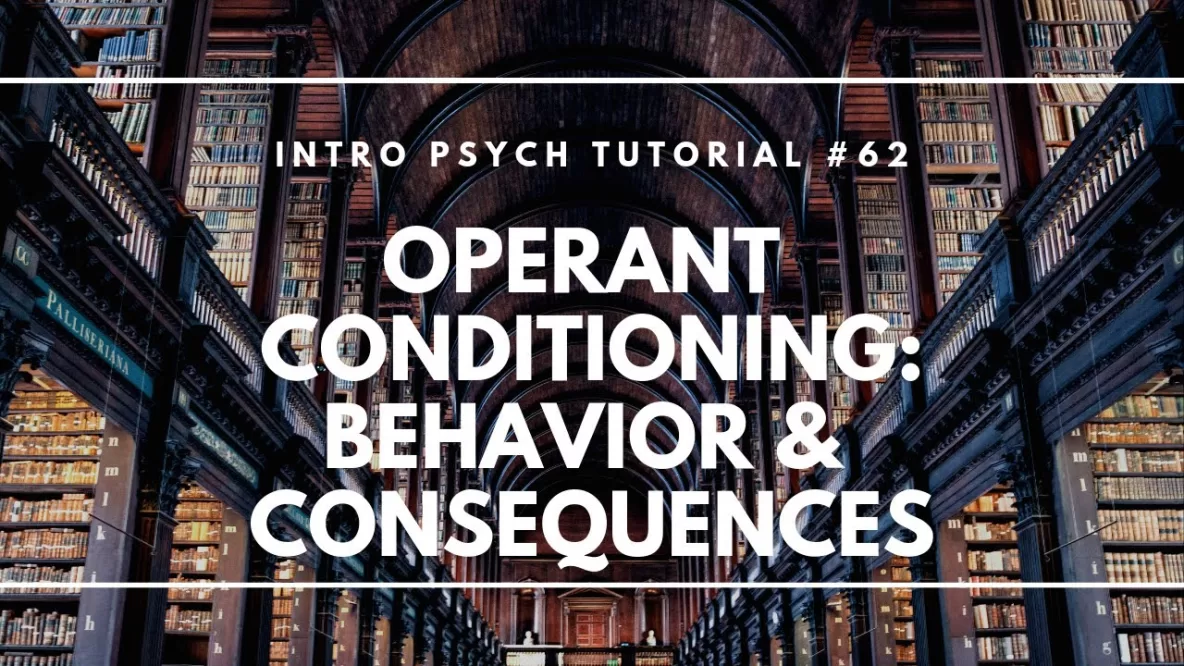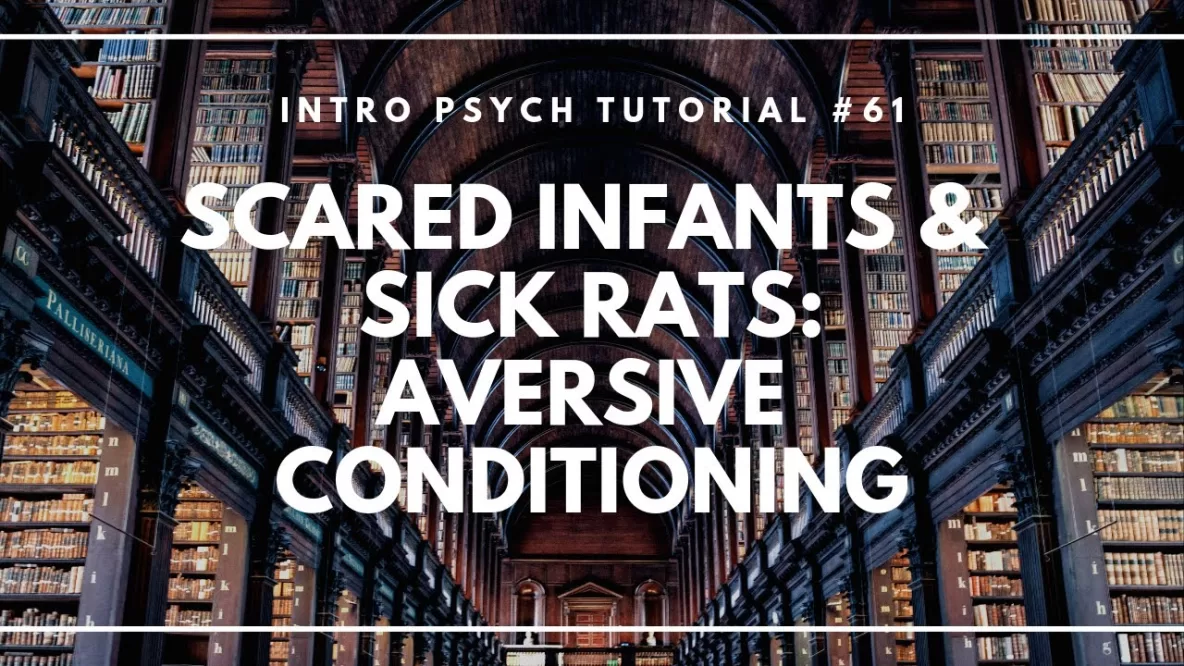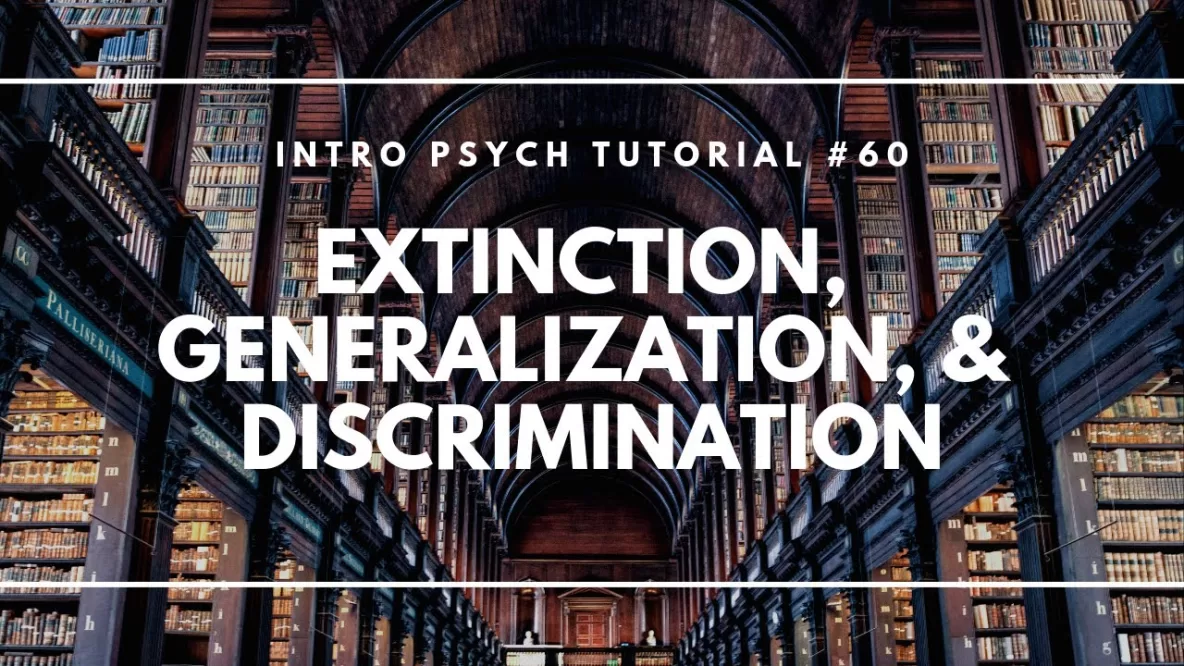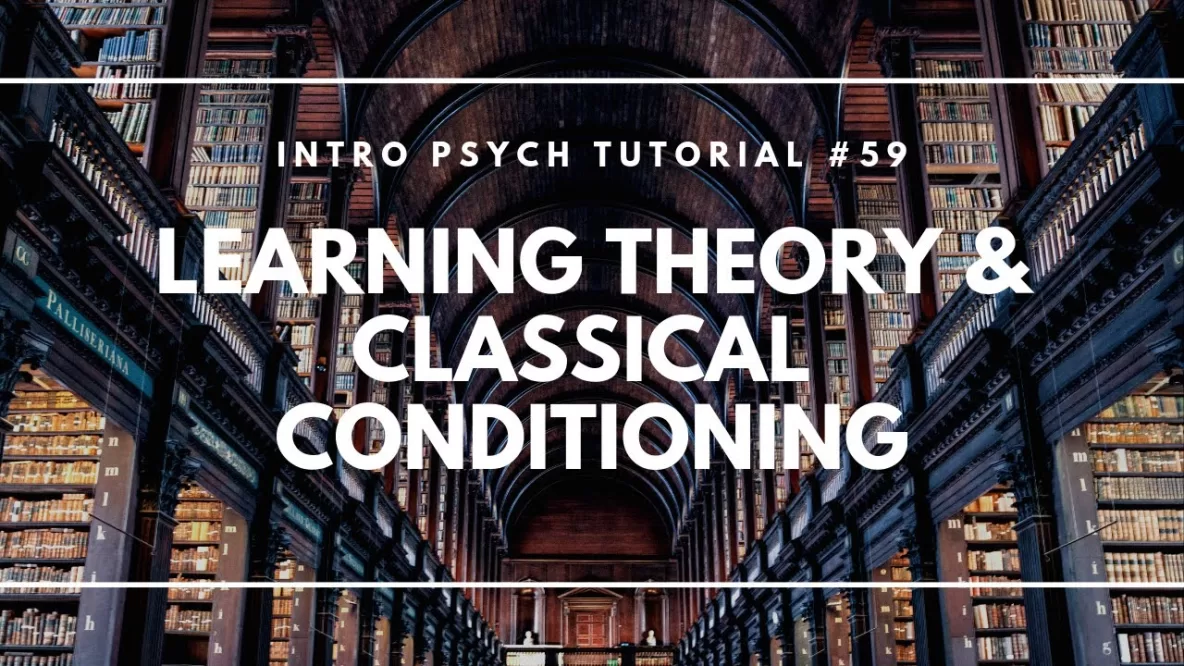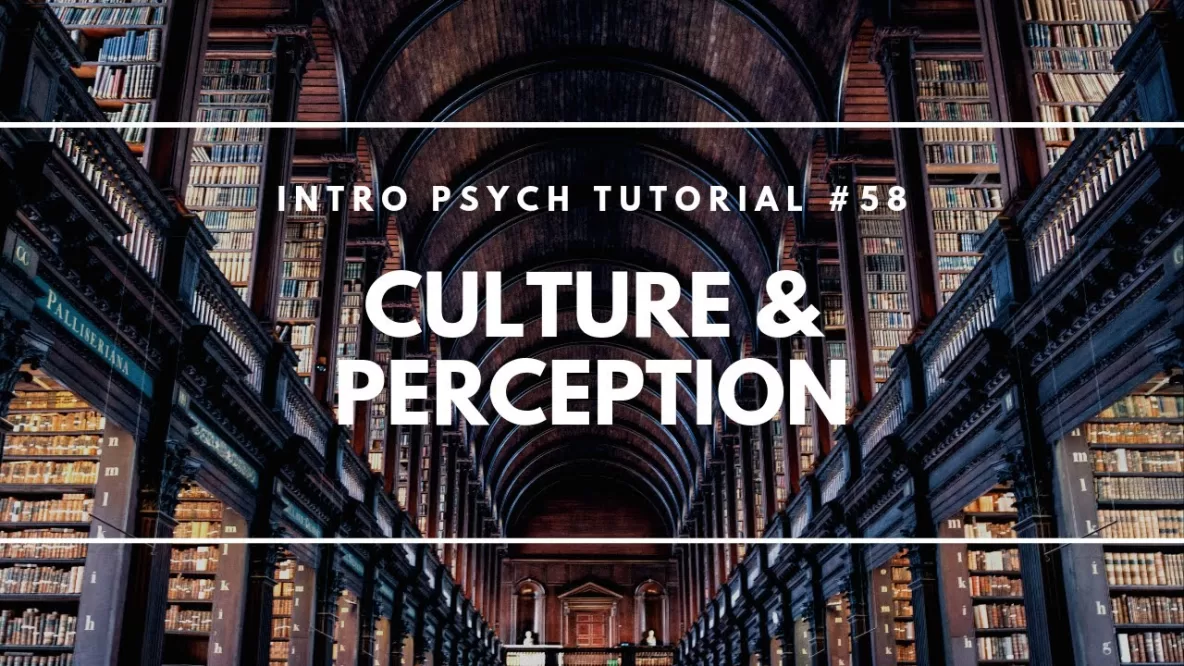In this video I describe the Premack Principle which refers to the idea that behaviors can be high or low probability which in turn means that high probability behaviors can serve as reinforcement for low probability behaviors. Don’t forget to … Read More
Chaining, Shaping, & Instinctive Drift
In this video I describe the how conditioning to be used to train more complex behaviors. This can be accomplished with chaining, which involves linking together previously conditioned behaviors, and shaping, which involves reinforcing successive approximations of a desired behavior. … Read More
Operant Boxes & Schedules of Reinforcement
In this video I describe the operant boxes used by Skinner (often called “Skinner boxes”) to study the relationship between different schedules of reinforcement and behavior. Then I describe 4 possible schedules of reinforcement including fixed-ratio, variable-ratio, fixed-interval, and variable-interval, … Read More
Operant Conditioning
In this video I explain the difference between classical conditioning and operant conditioning. Next I explain Thorndike’s work with cats in puzzle boxes which led to his Law of Effect. This approach was greatly expanded by B.F. Skinner’s work on … Read More
Scared Infants and Sick Rats: Aversive Conditioning
In this video I explain two examples of aversive conditioning; John Watson’s “Little Albert” study pairing presentation of a rat with a loud noise, and John Garcia and Robert Koelling’s work on learned taste aversions in rats. Taste aversions demonstrate … Read More
Extinction, Generalization, and Discrimination
In this video I explain some other terminology for describing aspects of classical conditioning including acquisition, extinction, spontaneous recovery, stimulus generalization, stimulus discrimination, and second-order or higher-order conditioning. Don’t forget to subscribe to the channel to see future videos! Have … Read More
Classical Conditioning
In this video I introduce learning theory and the basic concepts of behaviorism. This begins with the work of Ivan Pavlov on classical conditioning and covers the basic vocabulary for discussing this type of learning including neutral stimulus, unconditioned stimulus, … Read More
Culture and Perception
In this video I consider the role of culture on perception. The fact that we must learn how to perceive the world creates the possibility that our culture can shape our perception. I provide one example of this, known as … Read More
- Page 2 of 2
- 1
- 2

